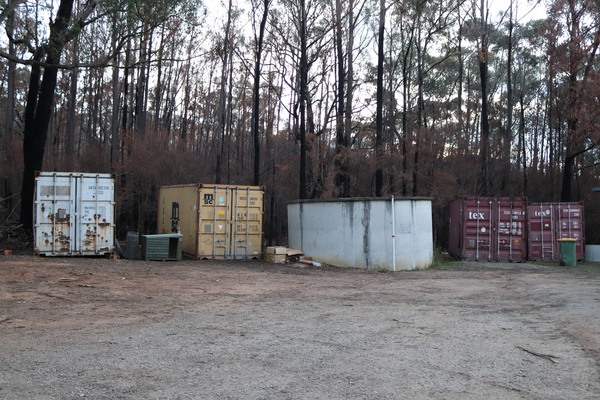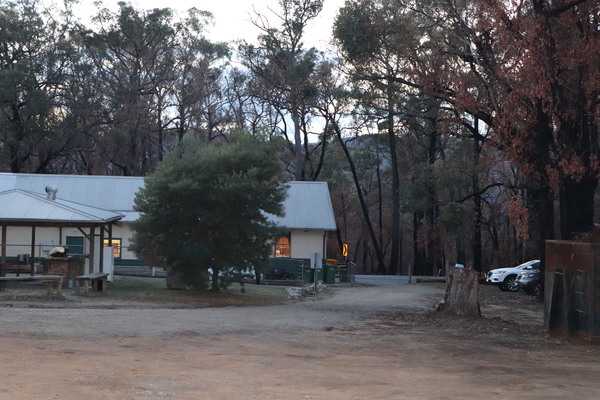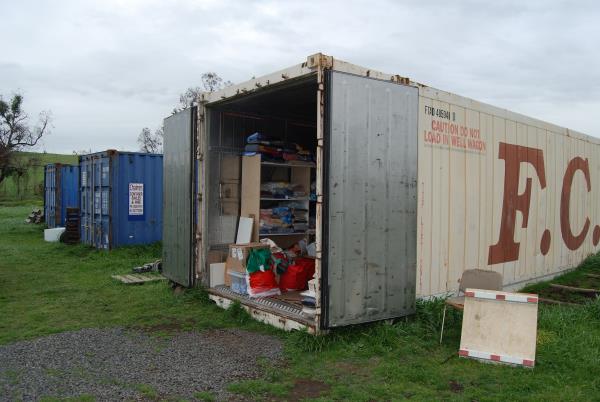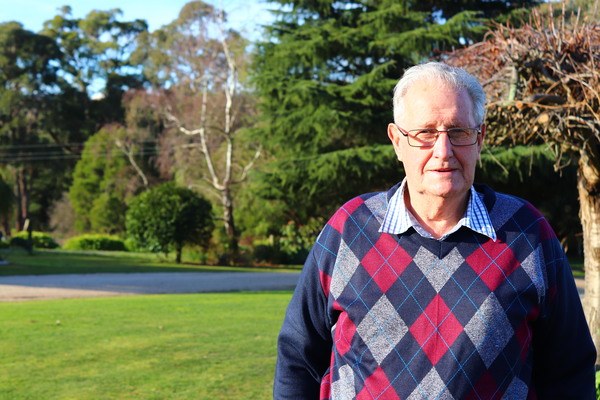Ask around at Tonimbuk Hall’s bushfire community recovery centre, and Alan Blackwell’s name will inevitably come up, along with a number of descriptors: helpful, knowledgeable, invaluable. Behind the local legend is a humble man who has spent decades dedicated to the wellbeing of his community, as DANIELLE KUTCHEL found out.
“It goes from fire recovery into community rebuilding – and that’s where Tonimbuk is about at now.”
Allen Blackwell can remember Ash Wednesday like it was yesterday. As the fires raged through Upper Beaconsfield and the town turned to ash he found himself, knapsack in hand, fighting alongside the professional firefighters to save buildings and livelihoods.
Along with his son, Mr Blackwell bravely confronted the flames despite the water tower being out of water. The power had been cut off, rendering water tanks with pressure pumps useless. Somehow though, they managed to get one stage under control. The two parties split, taking different roads to the next front. The crew never made it; trapped on a bush track, they tragically lost their lives, as did many of his family and friends.
Mr Blackwell pauses to reflect before continuing.
He and his son followed the front back to their own house, where they’d left the lid off the underground concrete tank with a bucket standing by for the emergency.
“We were able to get water and we saved our house and several others. However, we did lose our shed, equipment and livelihood temporarily,” he muses.
“So that taught me if you can get in straight after the front’s gone through, you can save a lot of houses.”
He picked up other lessons from Ash Wednesday too, including that concrete underground tanks are more useful than plastic ones that might melt in the ferocious heat of a bushfire, and that “with a knapsack and water you can do a lot of good!”
But the most useful lessons would come after that devastation.
He’s been described by others as a non-conformist, and Mr Blackwell shares that assessment to a certain degree.
“I think I’m a selective non-conformist. I conform to a lot of things but there are a lot of things I don’t conform to. And that’s where I do things that a lot of people wouldn’t,” he explains.
That includes tackling the council head-on during recovery from natural disasters when he doesn’t believe things are being done the right way.
A builder by trade, Mr Blackwell was heavily involved in the recovery efforts. He heard that the council would be taking all the logs and trimmed wood to the tip, which was short on room. Foreseeing a shortage of firewood in winter, Mr Blackwell suggested leaving it in a spare block of public land to be used by residents later in the year – but he was overruled and the wood went to the tip.
Sure enough, he says, for the next few years Upper Beaconsfield was short on firewood.
This lesson came in handy after Black Saturday.
In the aftermath of that disaster, with communities reeling from the loss of the landscape and livelihoods, Mr Blackwell leaped into action and set up what he calls a “holistic” recovery centre at Labertouche covering all the needs of the community rather than just the immediate fire emergency response that he says were set up by the councils.
“I think the experience of the Ash Wednesday fires and Cyclone Tracy rebuild must have subconsciously said ‘that’s not covering everything’, so I thought ‘I’ll just hang around here and see what happens’.
He set up office in a donated caravan on some spare land in Labertouche, and soon volunteer groups like St Vinnies moved in to help coordinate donations and information.
“The caravan was very helpful then,” Mr Blackwell says.
“We had nothing else. The shire and other organisations worked for a certain time in the hall. BlazeAid weren’t about in our area.”
This time, the firewood was saved and treetops were mulched to be redistributed to residents as communities rallied to get back on their feet. Scrap metal bins were made available. Temporary reestablishment of residents on their property was required at times for mental health reasons – which Mr Blackwell says is more important than red tape.
“It goes from fire recovery into community rebuilding – and that’s where Tonimbuk is about at now.”
Mr Blackwell is one of those credited with setting up the bushfire community recovery centre at Tonimbuk Hall when the Bunyip Complex fire swept through the area in March, after others involved called on his expertise – fleshed out at Labertouche and even in the fires in Tasmania, coordinating with BlazeAid at Dunalley.
He returned early from a holiday to set-up the Tonimbuk Recovery Centre within a matter of days, and often pulled nine hour days, six days a week.
While he says it’s now running “fairly well”, it hasn’t been without problems.
In particular, there is a constant struggle to retain volunteers, especially as older people or those who have been volunteering since the start of the recovery burn out and drop away.
“People are so busy these days,” Mr Blackwell laments.
“They go away to work all day and when they come home on the weekend they have lawns to mow and sports to watch or play. It’s just not the same somehow. And forming communities is not a high priority.
“There are too many pressures in life that you’ve got to cope with without taking on pressures from outside.
“The people that do volunteer enjoy it; they form relationships with a lot of the people they’re volunteering for. But it also creates community.”
This time around, he has also struggled against red tape. He says the public liability insurance held by volunteer groups often doesn’t cover those over 80, and jobs that were once so simple, like cutting logs, now need chainsaw qualifications before anyone can get started on urgent clearing work. Gathering residents’ contact details has been restricted by privacy laws. Important time is being lost, he says.
“When there’s a catastrophe like this, red tape should be cut back to pink at least, if not white,” Mr Blackwell says.
“We never had a complaint from anybody, never had an injury at Labertouche. But now all these things are tightening up, making it harder and harder, so I can’t see that a recovery centre like this will ever be set up again because red tape is going to stop it.”
The 82-year-old is now looking to take a step back from the action to focus on his own wellbeing.
He’s not sure whether all the disasters he’s seen have impacted him, even knowing the blokes he fought alongside in Ash Wednesday were killed – but the stress of fighting the bureaucracy has given him nightmares.
“I’m not fond of bookwork and meetings … unless it’s really getting something practical done then I’ll get involved. I’m past it, bodily and mentally.”
Meanwhile, there are hobbies that need attention, including restoring an old military tractor that was captured at Tobruk, fixing up a rare early-model boat motor, and working on some of his late father’s projects.
“I’ve got all these things I want to do but time’s running out, energy’s running out. I’ve got to go and sit down every so often to recuperate,” he chuckles.
Meanwhile, the council has largely taken over the running of the Tonimbuk recovery centre, and Mr Blackwell says he will watch with interest to see if the government learns how to maintain a holistic resource for future disasters.
“I’d like to see it succeed and I’d like to see the government at least work out some way they can make it happen.”










